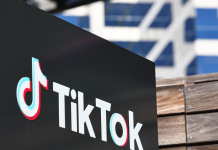US government officials were working closely with top US fuel pipeline operator Colonial Pipeline on Sunday to help it recover from a ransomware cyberattack that forced the company to shut a critical fuel network supplying populous eastern states.
The attack is one of the most disruptive digital ransom operations reported and has prompted calls from American lawmakers to tighten protections for critical US energy infrastructure against hackers.
Commerce Secretary Gina Raimondo said Washington was working to avoid more severe fuel supply disruptions and to help Colonial restart as quickly as possible its more than 5,500-mile (8,850 km) pipeline network from Texas to New Jersey.
“It’s an all hands on deck effort right now,” Raimondo said on CBS’ “Face the Nation” program. “We are working closely with the company, state and local officials, to make sure that they get back up to normal operations as quickly as possible and there aren’t disruptions in supply.”
Colonial said on Saturday it was “continuing to monitor the impact of this temporary service halt” and to work to restore service.
Neither Raimondo nor the company gave an estimate for a restart date and Colonial declined further comment on Sunday.
Colonial transports roughly 2.5 million barrels per day of gasoline and other fuels from refiners on the Gulf Coast to consumers in the mid-Atlantic and southeastern United States.
Its extensive pipeline network serves major US airports, including Atlanta’s Hartsfield Jackson Airport, the world’s busiest by passenger traffic.
Retail fuel experts including the American Automobile Association said an outage lasting several days could have significant impacts on regional fuel supplies, particularly in the southeastern United States.
While the US government investigation is in the early stages, a former US official and two industry sources said the hackers are likely a professional cybercriminal group and that a group called DarkSide was among potential suspects.
DarkSide is known for deploying ransomware and extorting victims while avoiding targets in post-Soviet states.
Ransomware is a type of malware designed to lock down systems by encrypting data and demanding payment to regain access.
Cybersecurity firm FireEye has also been brought in to respond to the attack, according to the two industry sources. FireEye declined to comment.
Colonial has said it was working with a “leading, third-party cybersecurity firm,” but did not name the firm.
Bloomberg News, citing people familiar with the matter, reported late on Saturday that the hackers are part of DarkSide and took nearly 100 gigabytes of data out of Colonial’s network on Thursday ahead of the pipeline shutdown.
Messages left with the DarkSide hackers were not immediately returned. The group’s dark website, where hackers regularly post data about victims, made no reference to Colonial Pipeline.
Colonial declined to comment on whether DarkSide hackers were involved in the attack, when the breach occurred or what ransom they demanded.
BIDEN BRIEFED ON HACK
President Joe Biden was briefed on the cyberattack on Saturday morning, the White House said, adding that the government was working to try to help the company restore operations and prevent supply disruptions.
Another fuel pipeline serving the same regions carries a third of what Colonial does. Any prolonged outage would require tankers to transport fuels from the U.S. Gulf Coast to East Coast ports.
The privately held, Georgia-based company is owned by CDPQ Colonial Partners L.P., IFM (US) Colonial Pipeline 2 LLC, KKR-Keats Pipeline Investors L.P., Koch Capital Investments Company LLC and Shell Midstream Operating LLC.
Gasoline futures and diesel futures on the New York Mercantile Exchange rose on Friday after the outage was reported. In previous Colonial outages, retail prices have risen substantially, if briefly.
Oil refining companies contacted by Reuters on Saturday said their operations had not yet been impacted. Some were monitoring developments and working to find alternative transport for customers.











